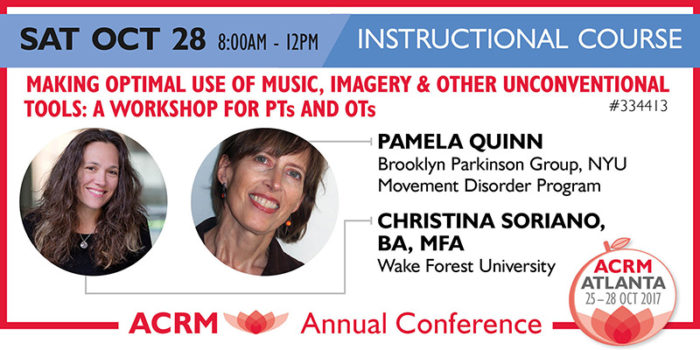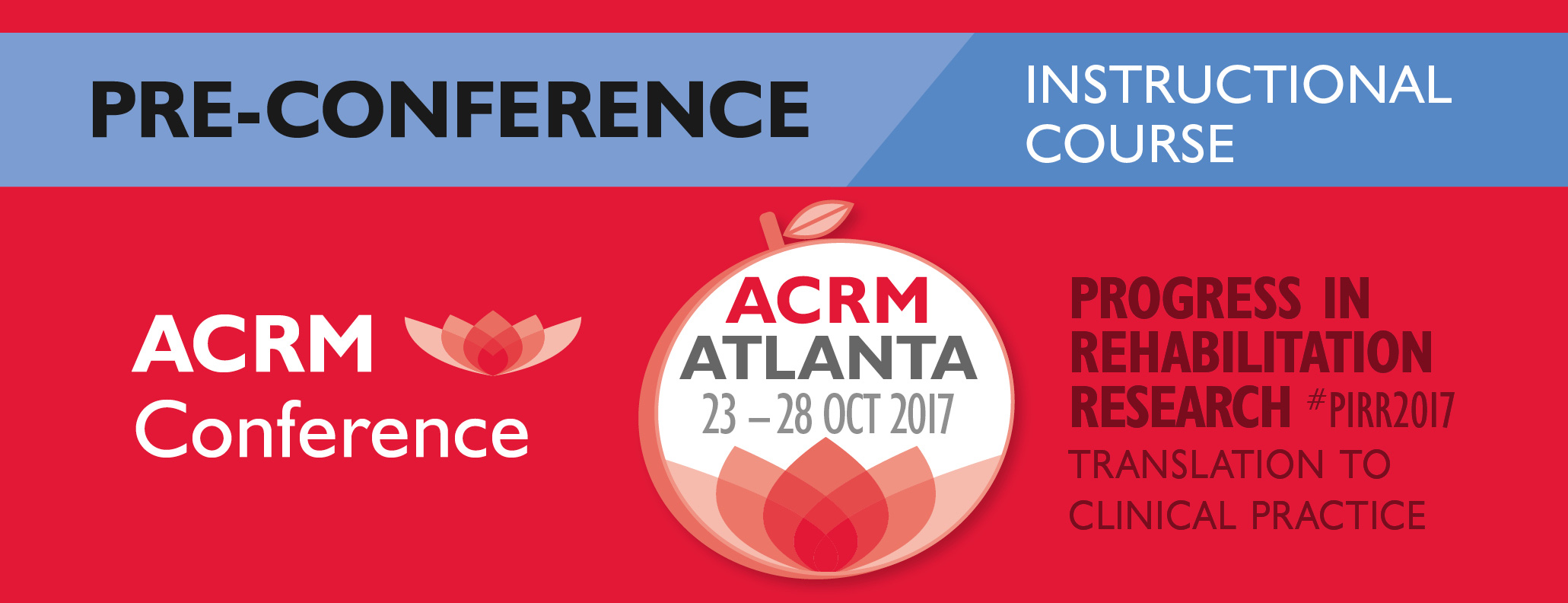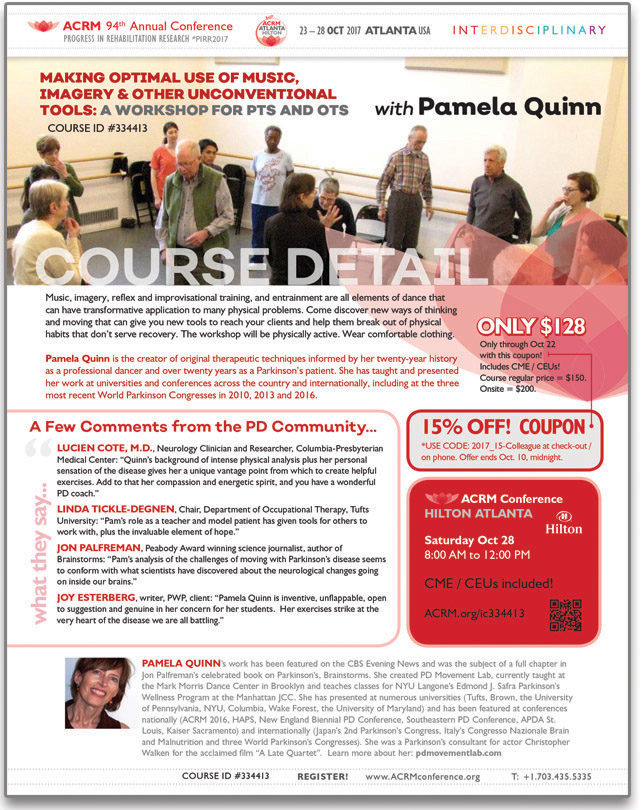
SAT 28 OCT // 8:30 AM – 12:30 PM
Only $128
Only through Oct 22
with this coupon: 15% OFF see details here*
Includes CME / CEUs! Course regular price = $150. Onsite = $200.
*This course is included if you purchased the CORE conference or the WORLD PASS registration ticket.
*USE CODE: 2017_15-Colleague at check-out / on phone. Offer ends Oct. 10, midnight.
Primary Content Focus: Arts & Neuroscience
Secondary Content Focus: Neurodegenerative Disease (e.g. MS, Parkinson’s disease)
For PTs and OTs: Music, imagery, reflex and improvisational training and entrainment are all elements of dance that can have transformative application to many physical problems. Come discover new ways of thinking and moving that can help your clients break out of the physical habits that don’t serve recovery and encourage you to find new methods to reach them.
LEARNING OBJECTIVES
- Assess what kind of music best facilitates an exercise, how to customize it for their client, and how to build an extensive and useful playlist
- Draw from a variety of images to fulfill movement quality, and to understand and communicate how quality of execution of movement is significant for proper rehabilitation
- Employ drills and situational exercises that contain surprise as an element, thereby placing emphasis on training reflexes for fall prevention
- Understand the value and multiple natures of dance improvisation, especially for people with cognitive impairment and those at risk for falls
- Know how to entrain with others gaits and how to teach technique to others
PRESENTERS
Pamela Quinn
Brooklyn Parkinson Group, NYU Movement Disorder Program
Christina Soriano, BA, MFA
Wake Forest University
BIOS

Pamela Quinn is a professional dancer who has had Parkinson’s disease for over 20 years. Her personal experience of PD combined with her keen knowledge of the body derived from dance training gives her a unique position from which to analyze patients’ physical functioning and to imagine creative solutions to the problems posed by PD. Using a combination of cuing systems, music, dance, athletic drills, imagery and physical strategies, she gives people concrete tools to improve their mobility and their lives. Pamela also trains PWPs (and their OTs) to use their environments to help them with their symptoms. Her innovative approach has achieved wide-spread recognition and made her a sought out movement therapist, teacher and speaker in the PD community. She thinks of herself as a PD coach.

Christina Tsoules Soriano is an Associate Professor of dance at Wake Forest University where she teaches a wide spectrum of courses in the dance program, including Modern Dance Technique, Improvisation, Dance Composition, a first year seminar about dance and film, and a course she co-teaches with chemistry colleague Rebecca Alexander entitled Movement and the Molecular. Christina received her MFA in dance from Smith College and has danced for many inspiring choreographers, including Heidi Henderson and B.J. Sullivan and Amy Love Beasley. In addition to the new works she creates for the Wake Forest Dance Company each year, Christina’s choreography has been presented throughout New England, North Carolina, New York and in Vienna, Austria. Christina regularly teaches a community dance class in Winston-Salem, NC to people living with Parkinson’s Disease, and has been involved in two scientific studies that look at the ways improvisational dance can help their mobility and balance. She has received funding from the National Parkinson Foundation to hold improvisational dance workshops for professionals who work with patients in the NC Parkinson community. Christina is about to embark on a study funded by the Blue Cross Blue Shield of NC that will test improvisational dance methods as a way to improve cognition and balance for those living with early onset Alzheimer’s Disease. Her published work has appeared in the Journal of Dance Education, Research in Dance Education, Dance Magazine, Theatre Journal, the Journal of Mathematics and the Arts, and The Journal of Physical and Occupational Therapy in Geriatrics.
ACRM Annual Conference, Progress in Rehabilitation Research (PIRR#2017)
CORE: 25 – 28 OCT 2018 // HILTON ATLANTA, USA // PRE-CONFERENCE 23 – 25 OCT
REGISTER ONLINE HERE or Register by Phone: +1.703.435.5335
 |
 |
 |
 |












